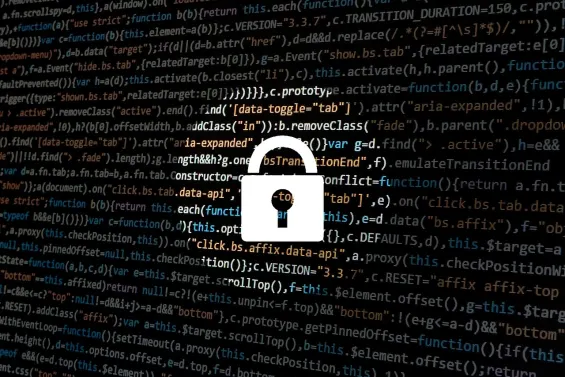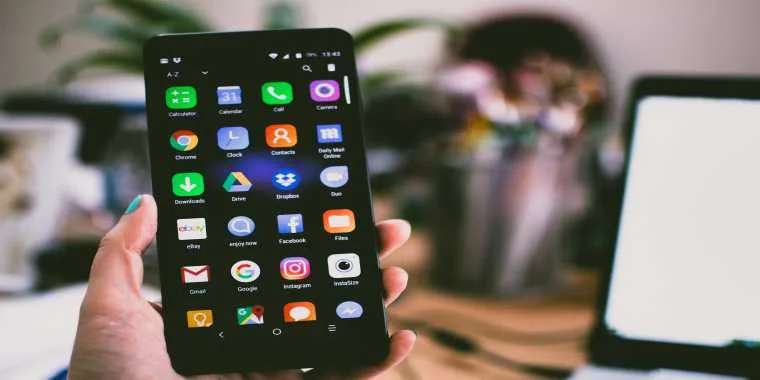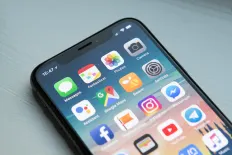The following topics will be discussed in this post.
- Tip #1: Understand and Consider Platform-Specific Limitations.
- Tip #2: Make Security a Priority.
- Tip #3: Secure Your Network.
- Tip #4: Require a High-Level Authentication.
- Tip #5: Encrypt All Data.
- Tip #6: Prevent Storing Sensitive Data.
- Tip #7: Keep Data from Leaking.
- Tip #8: Perform Continuous Testing.
- Wrapping Up
Mobile devices nowadays let us do almost everything online. We can perform secure transactions and stay on track with our fitness regimen. We can also control the devices we have at home. Even better, we can also do remote work.

In case you didn’t know, the driving force behind this increasing mobile productivity is mobile apps. These virtual pieces of technology work by connecting servers and APIs all over the world to deliver services, data, convenience, and value to users.
While these apps seem to be very powerful and handy, behind them is a plethora of threats and risks trying to jeopardize their security and information database. This is because where information thrives, hackers are not always far behind.
Whether it comes for games or cleaner apps for Android, the thought that they store important data makes them huge targets for malicious activities. So, if you are developing Android cleaner and booster apps, here are some ways to improve security:
Tip #1: Understand and Consider Platform-Specific Limitations.

To develop an Android care app and code accordingly, you have to understand and consider the limitations and security features of the Android platform itself. Make sure that when you are coding, you take into account the fact that this operating system deals with passwords, encryption, and geo-tagging in different ways.
Tip #2: Make Security a Priority.
You have to make security a priority, not only during the development phase but also during the planning phase.
It is worth noting that native apps are more vulnerable compared to web-based ones. This is because once they are downloaded, the code will stay on the device. So, if you are a developer, you should spend time on writing a secure code.
As a developer, your failure to test your code can cause huge vulnerabilities. One wrong line in your code and hackers can easily retrieve the information they need. If you don’t want that to happen, you have to write an encrypted code that is carefully tested for vulnerabilities.
Just because your app has been uploaded and made available in the App Store does not mean it is safe. You should know that there are many unsecured apps out there, so you can never be too confident.
Tip #3: Secure Your Network.
Aside from securing your code, you have to ensure that the servers that your mobile app accesses are secure, too. This way, you can protect your users’ data and prevent any unauthorized access.
Be sure that the APIs and the people who access the servers are verified. By doing this, you can secure the data that are passed by the client to the server and the database.
You can boost your network’s security by using an encrypted connection or by connecting to a virtual private network. If these two options are not possible, you may consider using another security measure called containerization. In this method, you create encrypted containers that are best used for securing crucial documents and data.
Tip #4: Require a High-Level Authentication.
Here's an interesting fact you should know: the majority of security breaches take place due to weak authentication. This is why you should always require a high-level authentication when developing a mobile app.
When you say authentication, this usually refers to passwords. You simply encourage users to be extra careful when dealing with their passwords. You may design your app in such a way that only strong and reliable passwords can be used.
Another way to boost your mobile app security is to use two-factor authentication, or 2FA. This technology requires users to input a certain code that is sent to a phone number or an email address.
There are other new and more secure authentication methods. These methods include bio metrics, such as retina scans or fingerprints.
Tip #5: Encrypt All Data.
Encrypting your app’s code is not enough. The data that is being exchanged over your app and your server needs to be encrypted, too.
Encryption means that even if data is stolen, hackers can’t do anything with it. When they access it, all they can see are mere letters and numbers.
Tip #6: Prevent Storing Sensitive Data.

When designing your app, make sure that you keep data storage to an absolute minimum to prevent risks. If possible, never store any confidential data on a mobile device or your server. Doing so will only increase the risk levels. But if you really need to store data, you have to put them in encrypted data containers.
Tip #7: Keep Data from Leaking.
Before users can interact with your app, they need to agree with certain permissions. Sad to say, they don’t always pay attention to these permissions, allowing some businesses to take advantage of their personal information.
To ensure your app users’ data doesn’t get leaked to third-party vendors and hackers, you should implement advertising and data permissions ethically. These days, there are many app developers that release user data to malicious vendors without their knowledge. You shouldn’t be among them.
Tip #8: Perform Continuous Testing.
Unfortunately, some developers skip this part. As long as their apps are made available on the App Store, they don’t pay attention to testing anymore.
Testing before and after an app is launched is crucial if you want your app to stand out, not only in terms of functionality but also in terms of security. To ensure your app’s code is secure, it should be tested and reviewed now and then. Once problems are identified, fix them.
Wrapping Up
Mobile app developers today should be aware of all the risks involved online. With the tips above, at the very least, your mobile app’s security should have a solid and strong foundation. Before launching your app on the market, all cybersecurity threats should be known.
Remember that cybersecurity is constantly improving. And for mobile apps, it has become a great differentiator and an indicator for success. So, if you really want your Android care app to stand out, you should not only focus on usability and user interface. You have to pay attention to security.
Read Next
The following articles are related to 8 tips to improve mobile application security .
















This is an informative post. Got a lot of info and details from here. Thank you for sharing this and looking forward to reading more of your post.
Thanks for sharing these tips, Cathy. Nowadays people are more forwarded to mobiles and it becomes the center points for hackers. These tips will surely help those who wanted to protect themselves. Keep sharing.
I study your post, You know what I really appreciate your Work. It is very descriptive. And I really want to share my experience too.
Thanks for this awesome listing we love it.